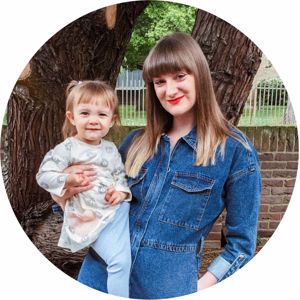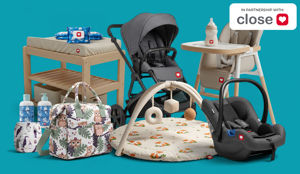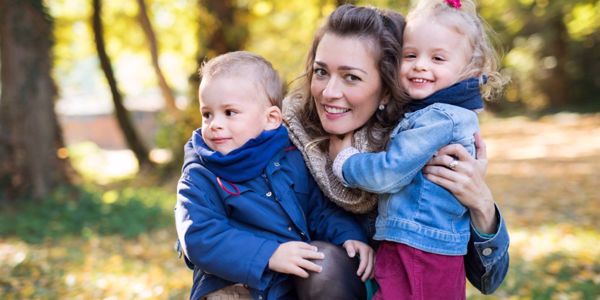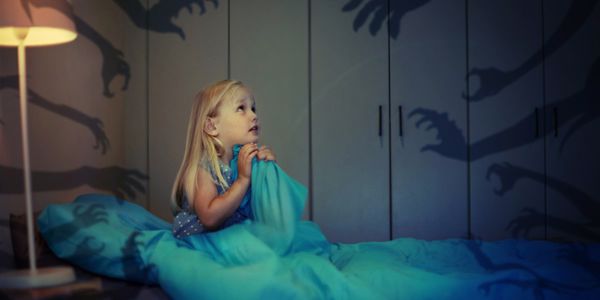Please be aware that before reading this, I have not had my child ‘tested’ or ‘diagnosed’ in any way. My awareness of my daughter’s ADHD is based on first-hand experience as someone with ADHD myself, not by a medical professional’s opinion.
So, my toddler has ADHD. I know this because I was diagnosed with having ADHD at age four. I have spent my whole life learning to live with my condition and to fit in not only with society, colleagues and friends, but with my own family unit too. My toddler is, for lack of a better word, my clone. Her mind is 100% on the same wavelength as my own, which is why I am confident enough to say that she does have ADHD, just like me.
Attention Deficit Hyperactive Disorder is a condition which usually affects children age six and up, but it can be spotted earlier if you know what you are looking for. I knew that from those very first months, that Alice was special. As soon as she was born, her head shot up; she was looking around at her brand new world like a meerkat. Her eyes were all-knowing, taking everything in. She was such a happy little baby, and still is today. She knows what she wants and is a truly independent soul. When she started walking and talking at age one, I began noticing little things that she did differently to other babies her age. She wouldn’t sit still to do anything like building blocks or play with interactive toys for more than five seconds at a time, and now that she is older, her understanding levels rival that of a three to four-year-old even though she has only just turned two.
Her attention span is so short that I still haven’t been able to read a book with her from start to finish. She always has a million things on the go, and I have to keep up with her (quite literally) all the time. Now that Alice has started attending sessions at nursery, the difference to those her age is only more apparent. I have been told that moving her up from the baby room into the toddler group will be difficult, as she still needs one-to-one care. The ratios in the older group are 1:4, so this will have to be looked into and planned out carefully for Alice. She can’t help herself when she sees something she wants, which moves us onto impulses.
Controlling an impulse at any age is difficult. That one extra chocolate even though you know you shouldn’t, or starting to watch a new Netflix series when you have better things to do with your time. Toddlerhood is a stage where kids learn their boundaries, and push them as far as they will go throughout the day. When you see your child about to touch a plug socket, instinct tells us to shout to warn them if we are too far away to pull them back, which usually stops them in their tracks. With Alice, a bomb could go off and she would still go for it. It doesn’t matter what I say or do, so I have to constantly be near her as she doesn’t realise the consequences of her actions. She would leap from her high chair or run into the road if I wasn’t there. This means I only really trust a handful of close family members to look after her who know her behavioural traits and can predict things she is about to do before she does it.
We love going out, and we take part in baby classes twice a week to keep up with her energy levels. She is a little pocket rocket, which actually means that like a Duracell bunny, she runs out pretty quickly if she’s entertained and fed little and often. She sleeps very well (I don’t know what I would do if she didn’t) as she is full-on from 6 am to 7 pm. She naps once a day for 1-2 hours as well, giving me enough time to recharge before it’s time to wake her up. I have had many people (strangers too) say, “I don’t know how you do it”, or “I wouldn’t last a day with her”, and I believe them! You have to be on the ball from the get-go, and I know that my capabilities to raise a child with ADHD is spurred on from having it too.
I have learnt a lot from my own experiences, but still find it difficult in many scenarios I am faced with. My family will never truly understand how my brain works, but I take comfort in the fact that I can 100% understand my daughter. She can’t help her nature, any more than the next person can, so I will try and teach her to embrace her differences, to use them positively and wisely to the best of my abilities. She is a gifted child, and my very best gift I could have wished for- as my mum calls her, my little Tasmanian Devil on speed!







